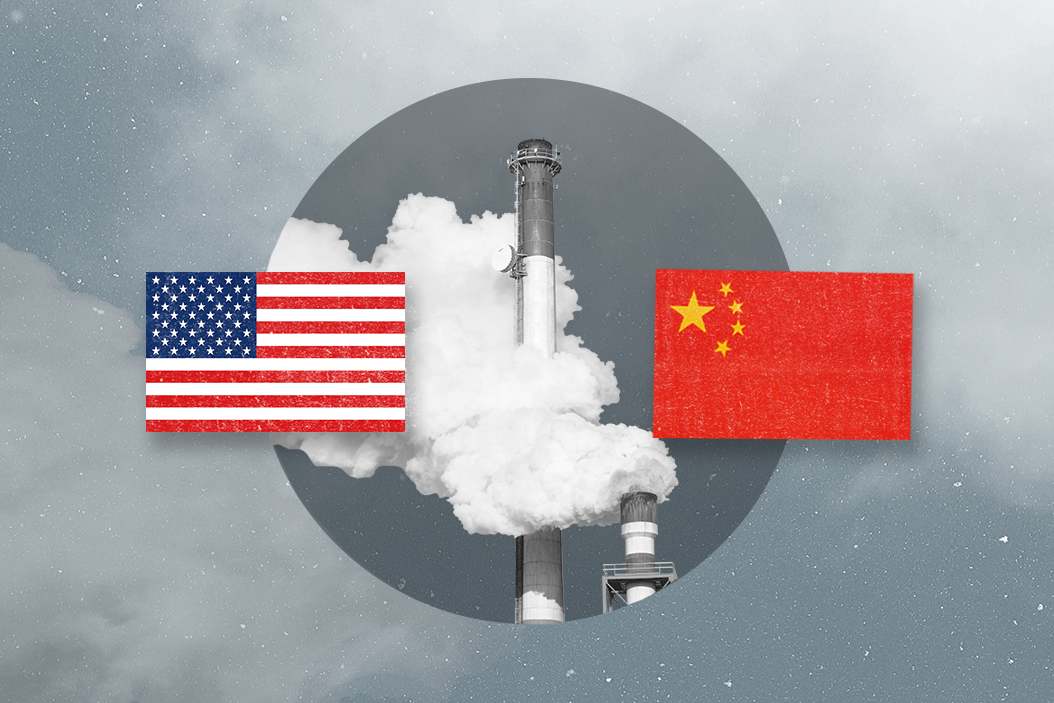July 16, 2023
US-China ties have had a rocky year so far — especially balloon-gate. But the one issue where the two sides have always sought to find common ground is climate. And as most of the planet experienced record heat waves this weekend, cooperation between the world's top two emitters of greenhouse gases feels even more urgent.
US climate czar John Kerry arrived Sunday in Beijing for three days of talks aimed at restarting a dialogue ahead of November’s COP28 climate summit in Dubai. Kerry is the third senior US official to visit China in the past month to try to ease tensions with Beijing. He wants China to do more on its Net Zero goals and contribute to a fund for rich nations to compensate poor ones for the effects of climate change.
But China is unlikely to pitch in, since the UN technically considers it a “developing” country, not a "rich" one. Beijing also resents the US for reinstating tariffs on Chinese-made solar panels and mulling a tax on foreign steel and aluminum that would hurt Chinese exporters.
What’s more, the US and China have sent mixed climate signals in the past two years. While the Biden administration has passed legislation that'll pour billions of dollars into green energy, it has also approved new plans to drill for oil and natural gas in Alaska and the Gulf of Mexico. China, for its part, has upped the percentage of renewable sources in its energy mix but is now burning coal like there's no tomorrow after the government's push to cut emissions caused power shortages.
The bigger issue is whether the US and China can make any significant progress on climate amid their broader rivalry. With neither side willing to be seen as the one making concessions even on such an existential issue, don't hold your breath.More For You
An employee works on the beverage production line to meet the Spring Festival market demand at Leyuan Health Technology (Huzhou) Co., Ltd. on January 27, 2026 in Huzhou, Zhejiang Province of China.
Photo by Wang Shucheng/VCG
For China, hitting its annual growth target is as much a political victory as an economic one. It is proof that Beijing can weather slowing global demand, a slumping housing sector, and mounting pressure from Washington.
Most Popular
Two Iranian motorcyclists stop in front of the burned East Tehran General Directorate of Tax Affairs headquarters in Tehran, Iran, on January 21, 2026.
Photo by Morteza Nikoubazl/NurPhoto
30,000: The estimated death toll in Iran during the protests at the start of the year, per local health officials, underscoring the scale of the Islamic Republic’s crackdown on its own citizens.
The World Health Organization (WHO) headquarters is seen in Geneva, Switzerland, January 28, 2025.
REUTERS/Denis Balibouse
Seventy-eight years after helping found the World Health Organization (WHO), the United States has formally withdrawn from the agency, following through on a pledge President Donald Trump made on his first day back in office.
Mastercard Economic Institute's Outlook 2026 explores the forces redefining global business. Tariffs, technology, and transformation define an adaptive economy for the year ahead. Expect moderate growth amid easing inflation, evolving fiscal policies, and rapid AI adoption, driving productivity. Digital transformation for SMEs and shifts in trade and consumer behavior will shape strategies worldwide. Stay ahead with insights to help navigate complexity and seize emerging opportunities. Learn more here.
© 2025 GZERO Media. All Rights Reserved | A Eurasia Group media company.
